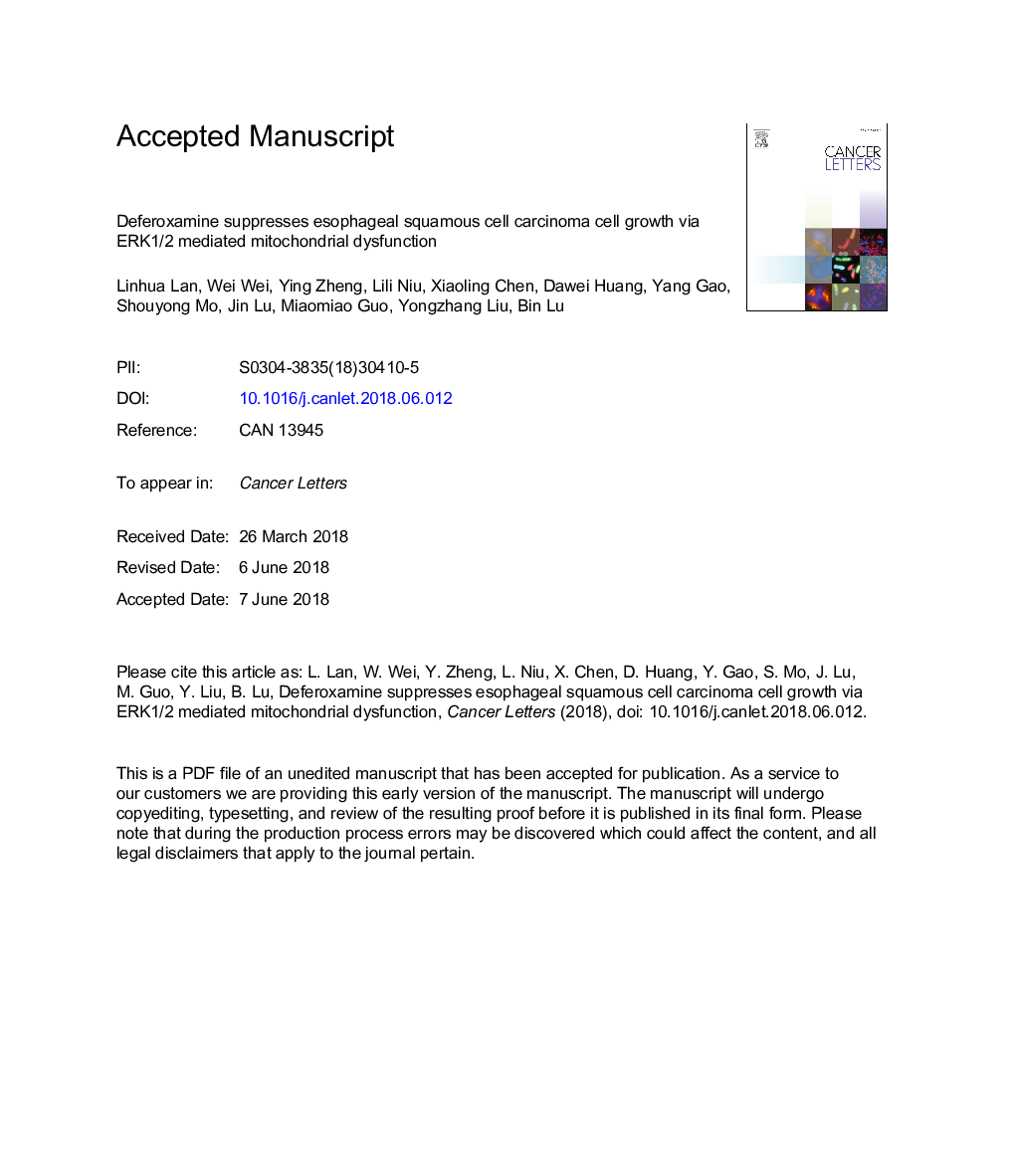| Article ID | Journal | Published Year | Pages | File Type |
|---|---|---|---|---|
| 8434231 | Cancer Letters | 2018 | 37 Pages |
Abstract
Deferoxamine (DFO) was found to modulate multiple cellular pathways involved in the growth of breast cancer, hepatocellular carcinoma, lung cancer and bladder cancer. However, the effect of DFO on esophageal squamous cell carcinoma (ESCC) remains unclear. Here, we report that DFO-treated ESCC cells show strong anti-tumorigenic properties, such as inhibition of cell proliferation, induction of cell cycle arrest, and promotion of apoptosis. Mechanistically, DFO significantly activated ERK1/2 signaling, which is reactive oxygen species (ROS)-dependent. ERK1/2 activation suppressed mitochondrial respiration and aerobic glycolysis in ESCC cells, resulting in reduced production of ATP and key precursor metabolites. Cell proliferation was functionally rescued by the ROS scavenger N-acetyl-l-cysteine (NAC) and the ERK1/2 inhibitor SCH7 72984. Additionally, our data showed that activated ERK1/2 was partially translocated to the mitochondria, which indicated that DFO-activated ERK1/2 may suppress tumor formation through inhibition of mitochondrial respiration. Moreover, the decreased c-Myc expression caused by DFO resulted in the inhibition of cell migration. Taken together, our study demonstrate that DFO activates ERK1/2 and downregulates c-Myc to perturb mitochondrial homeostasis and promote apoptosis, resulting in the novel anti-neoplastic activity of DFO in ESCC.
Related Topics
Life Sciences
Biochemistry, Genetics and Molecular Biology
Cancer Research
Authors
Linhua Lan, Wei Wei, Ying Zheng, Lili Niu, Xiaoling Chen, Dawei Huang, Yang Gao, Shouyong Mo, Jin Lu, Miaomiao Guo, Yongzhang Liu, Bin Lu,
